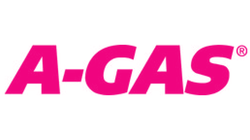Automotive industry to phase out environmentally-unsafe refrigerants
| Automotive industry to phase out environmentally-unsafe refrigerants_approved | 32.5 KB | Download | |
| A-Gas South Africa Sales Representative Werner Terblanche | 43.79 KB | Download | |
| HFO1234yf has similar cooling properties to R134a, which has been used as an automotive refrigerant | 16.93 KB | Download | |
| R134a, or 1,1,1,2-tetrafluoroethane is a haloalkane refrigerant with thermodynamic properties | 12.06 KB | Download |
Automotive air-conditioning systems currently run on R134a refrigerant. However, HFO1234yf has been introduced as the next-generation gas for car air-conditioners, according to speciality chemicals and gas supplier A-Gas South Africa.
R134a, or 1,1,1,2-tetrafluoroethane, is a haloalkane refrigerant with thermodynamic properties similar to R12 (dichlorodifluoromethane), but with insignificant ozone depletion potential, and a somewhat lower Global Warming Potential (GWP) of
1 300, compared to 2 400 for R12. HFO1234yf, or 2,3,3,3-Tetrafluoropropene, is the first in a new class of refrigerants with a GWP rating one 335th that of R134a, and an atmospheric lifespan about 400 times shorter.
HFO1234yf has similar cooling properties to R134a, which has been used as an automotive refrigerant since it was introduced way back in 1994 to 1995 as a replacement for R12. While R134a contains no chlorine, which is harmful to the ozone layer in the upper atmosphere, the problem is it does retain heat well, and therefore has an unacceptably high GWP.
While chlorofluorocarbons (CFCs) were common in the past, these were phased-out by the Montreal Protocol in the late 1990s, paving the way for the advent of HFCs (hydrofluorocarbons). Now the latest Kigali Amendment to the Montreal Protocol, ratified in October 2016, is looking to the future phase-out of the latter, and their replacement with HFOs (hydrofluoro-olefins), the fourth generation of fluorine-based gases.
According to the United Nations Environment Programme (UNEP), the Kigali Amendment includes specific targets and timetables to replace HFCs with more environment-friendly alternatives; provisions to prohibit or restrict countries that have ratified the protocol or its amendments from trading in controlled substances with states that are yet to ratify it; and an agreement by developed countries to help finance the transition of poor countries to alternative safer products.
In particular, African countries opted to phase down the chemicals faster than required, citing the grave threats the region faces due to climate change. “We have been able to meet our target of reducing our HCFC consumption by 10% in 2015, and are committed to ensuring we meet all of our targets,” South African Minister of Environmental Affairs Bomo Edna Molewa said.
The Kigali Amendment has divided the world’s major economies into three groups, each with a target phase-down date. The most developed countries, including the US and the European Union, will reduce the production and consumption of HFCs from 2019.
Most of the world, including China, Brazil, and all of Africa, will freeze the use of HFCs by 2024. A small group of the world’s hottest countries, such as Bahrain, India, Iran, Iraq, Kuwait, Oman, Pakistan, Qatar, Saudi Arabia, and the UAE, only have to halt HFC production and use by 2028.
With many international automotive manufacturers represented in South Africa, there will not only be a burgeoning demand for the new HFO1234YF refrigerant in future, but these systems will soon require servicing or recharge as well, necessitating both supply of, and training in, the latest refrigerant.
“That is ultimately where the aftermarket comes into the picture in the long term,” A-Gas South Africa sales representative Werner Terblanche points out. “Slowly but surely, as more and more of these vehicles are sold in South Africa, they will ultimately need to be serviced. Therefore, it is important for the industry to not only be knowledgeable about these gases, but also why there has been a need for this phase-out, and the ultimate benefits thereof.”
Furthermore, quality refrigerants are key in ensuring systems operate accordingly. Refrigerants that do not meet specifications can result in system failures. For example, a high moisture level will increase the acidity which, in turn, will corrode the system, leading to insufficient cooling or failure of the compressor, which can be costly to replace.
“Inferior refrigerants have surfaced in South Africa in recent years, sold by unethical importers, and often in generic disposable cylinders,” Terblanche highlights. Therefore, it is recommended that all repairs and servicing be carried by trained technicians and well-established automotive air- conditioning service centres that use quality, branded refrigerants.
“This is critical in terms of preventing equipment breaking down. Vehicle owners should further also be aware of which refrigerant their vehicle requires, in order to ensure that the correct refrigerant is charged into the vehicle’s air-conditioning system. Should the incorrect gas be used, it could ultimately result in costly damage,” Terblanche elaborates.
Ends
Connect with A-Gas on Social Media to receive the company’s latest news
LinkedIn: https://www.linkedin.com/company/10972305/
Notes to the editor
To download hi-res images for this release, please visit http://media.ngage.co.za and click the A-Gas link to view the company’s press office.
About A-Gas
A-Gas is a leader in the supply and lifecycle management of speciality chemicals. This includes: refrigerants, blowing agents, industrial gases, halon and fire protection agents used in industries operating in the HVAC, refrigeration, insulation, solvent, manufacturing and medical sectors. Delivering innovative and sustainable solutions for environmentally-sensitive gases and chemicals for more than 20 years, A-Gas offers a tailored ‘one-stop shop’ solution of products and services, helping its clients meet their regulatory obligations responsibly and sustainably.
Media Contact
Nomvelo Buthelezi
NGAGE Public Relations
Phone: (011) 867 7763
Fax: (086) 512 3352
Cell: 083 4088 911
Email: nomvelo [at] ngage [dot] co [dot] za
Web: www.ngage.co.za
Browse the NGAGE Media Zone for more client press releases and photographs at http:/media.ngage.co.za

